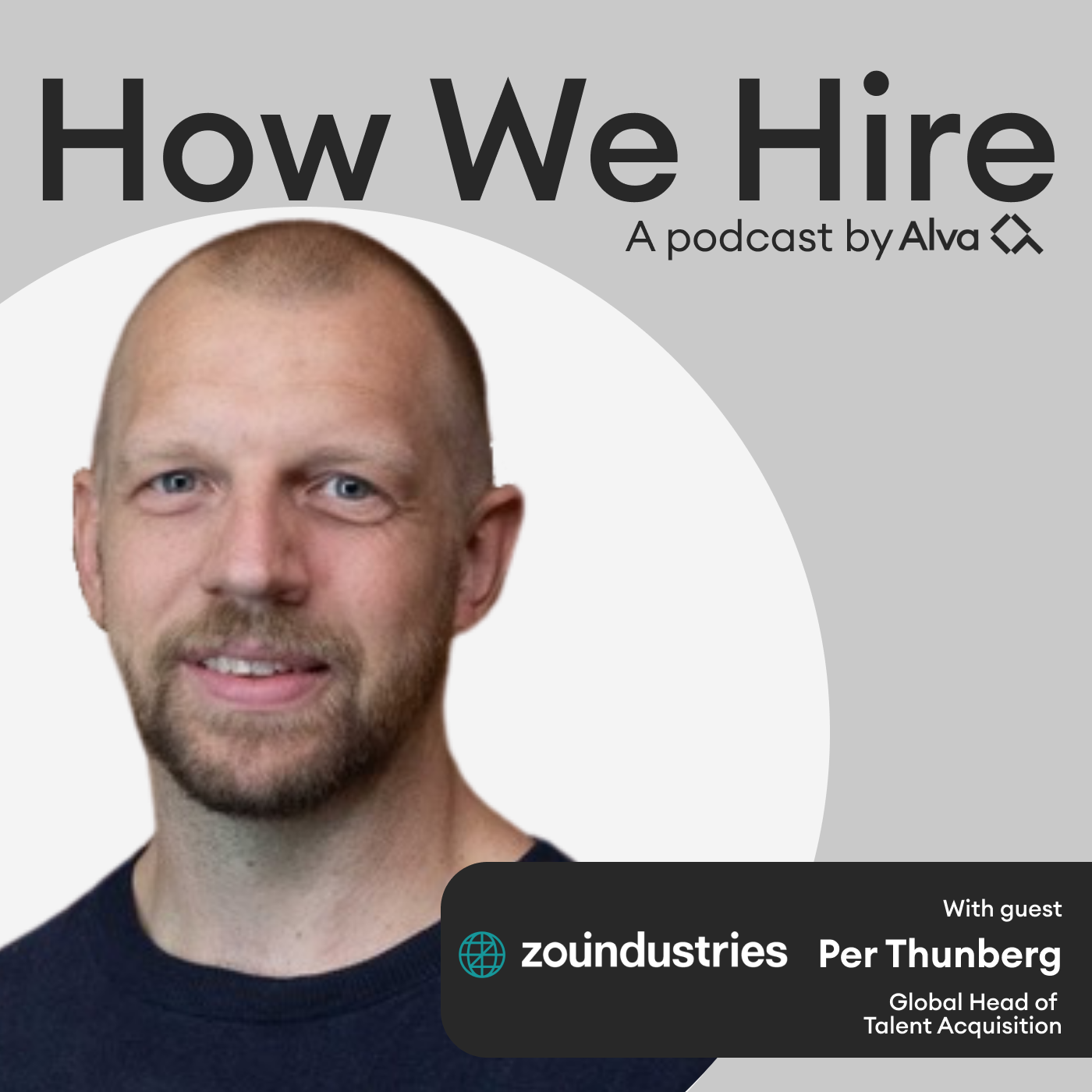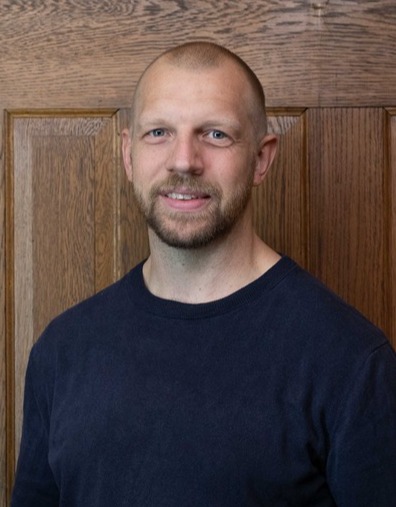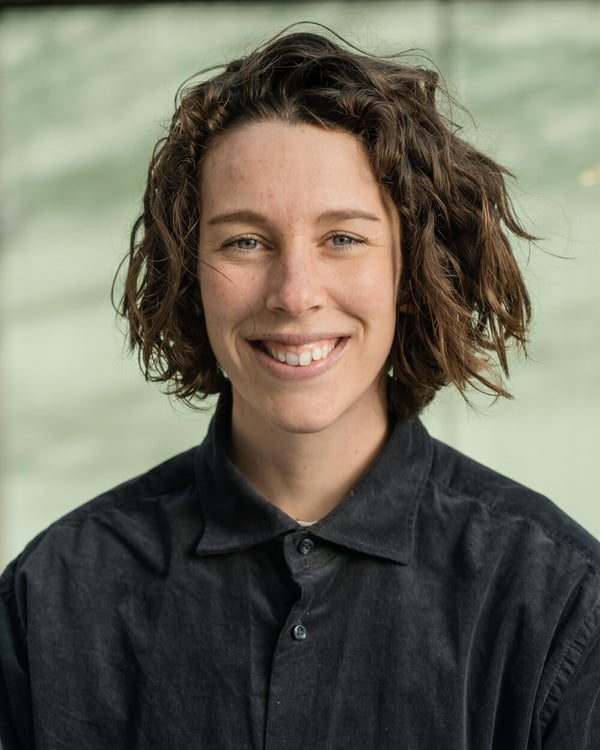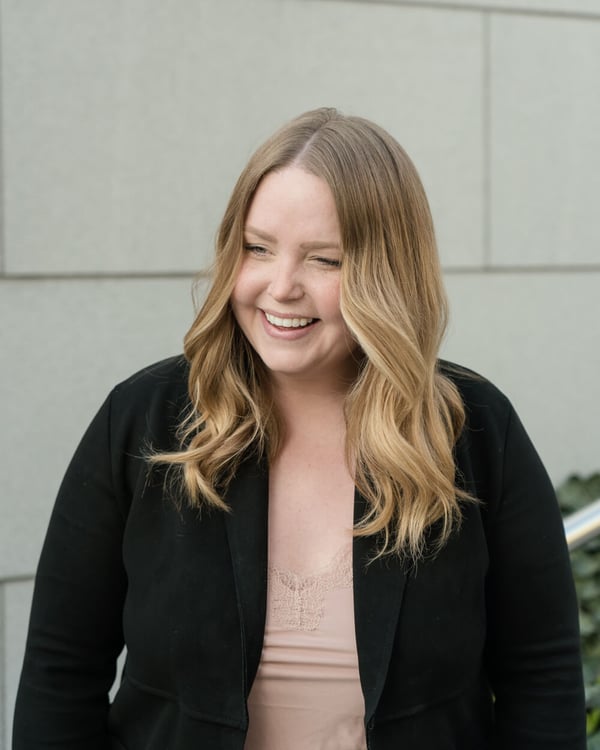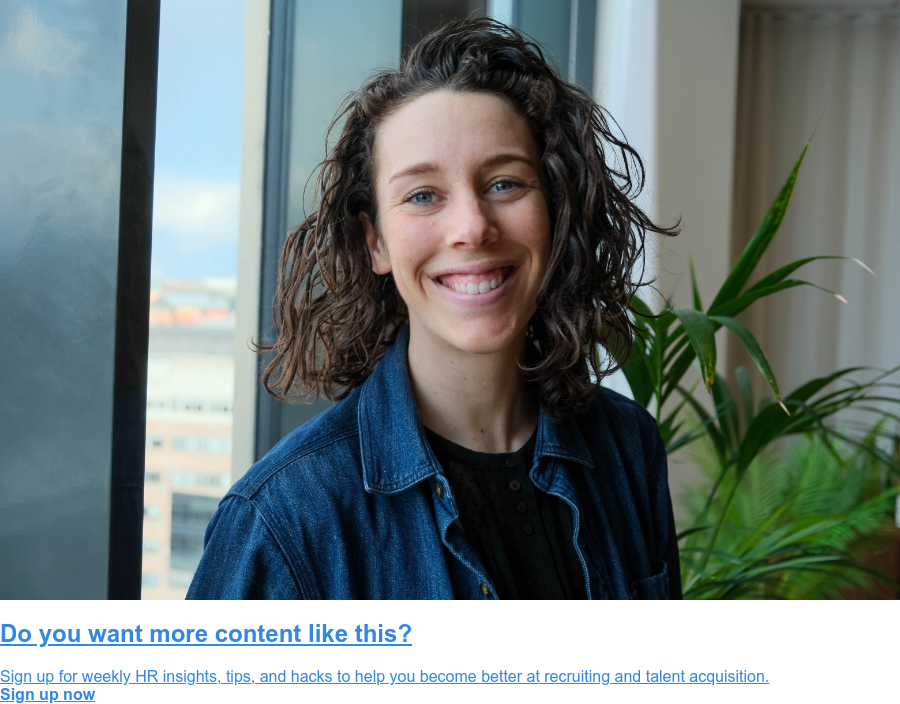Tove Hernlund: (00:06)
Welcome to How We Hire, a podcast by Alva Labs, with me, Tove Hernlund.
Linnea Bywall: (00:09)
And me, Linnea Bywall.
Tove Hernlund: (00:12)
This show is for all of you who hire, or just find recruitment interesting. Every episode, we will speak to thought leaders from across the globe, to learn from their experiences and best practice within hiring building teams and growing organizations.
Tove Hernlund: (00:31)
Hi and welcome, everyone, to another episode of How We Hire with me, Tove.
Linnea Bywall: (00:34)
And me, Linnea.
Tove Hernlund: (00:36)
Yay. Today we're super happy to have Per Thunberg from Zound Industries with us. Per, would you like to introduce yourself?
Per Thunberg: (00:43)
Yeah. Thanks a lot for having me join this podcast. Really excited to deep dive a bit in recruitment and hear more questions. Just in short about me. I'm heading up the talent acquisition function here at Zound Industries in Stockholm, our HQ office. We have office around the world also in Paris and London here in Europe. Also, in New York, in the US, and Shenzhen and Hong Kong, in Asia and China.
Linnea Bywall: (01:06)
Really curious about how... Because, we are obviously more of a B2B at Alva, which makes our brand often less known for candidates. What would you say is the biggest perk of working with a well known brand for consumer, and therefore often the candidates that apply to you?
Per Thunberg: (01:24)
That's a very good question. Yeah. I think a couple of things. One being that we want it to be really challenging brands that affect the consumers. I think most candidates, or that we talk to investors, et cetera, they know of through our brands, Marshall and Adidas. I think we then have the benefit to involve that in our communication, because, really, most of the world's recognized brands. Same time, we need to find out what Zound is, within this. Our founders, from the start, when Urbanears started, they created Zound at the same time. They were able to handle a portfolio of different brands. I think the communication on what Zound is, and it has been evolved in our brand platform, is something that we work really consistently, especially during the last few years. I think we're starting to nailing it, exactly how to communicate it. We use the icebreaker to talk about the products, right?
Linnea Bywall: (02:19)
Yeah. What would be the key learnings from getting better at communicating what Zound is?
Per Thunberg: (02:24)
First of all, awareness. I think such a... Because, that's something we don't have the benefit, because we're not selling anything through Zound as a brand. We really need to ensure to communicate with our talent, or communication in the groups for that way, what Zound is, first of all. The Zound story, I would say, and the journey that we have since we started back in 2008. Because, we've done a lot of amazing things through all of these years and struggled through tough times as well. I think the Zound story is something that brilliantly nurtured.
Per Thunberg: (02:59)
Getting that awareness, but also reaching the ones that we want to reach. Making sure that we also are reflecting our audience, because we have consumers all over the world. We're selling our products to 125 plus markets. I think that comes down to Zound to embrace that. To be a really global brand is really key for us. We want to reflect our people who are working at Zound with our audiences. Think about it, that makes a lot of sense. That's important, both for communication, but, again, then for people in communication.
Linnea Bywall: (03:34)
For sure. Both me and Tove know a bit of how you guys hire, but do you want to explain a little what take us through the process?
Per Thunberg: (03:43)
Yeah, sure. Starting off with communication, and in terms of... Because, that's where we really have spent a lot of time and effort, to ensure that we have a brand that communicates to everyone, no matter their background, their ethnicity, or their religious background, or where they might be. We now make sure that we have an inclusive communication. It goes both through images and the language that we use, and that we also ensure to have a multiple and very broad channel or marketing approach. We use several versions of our channels and forums and communities. Being quite proactive, in terms of finding these niche communities. That you need to actually spend some time to think, obvious to start on classic ones. I think that's really key, because that's how we can grow our brands and also the regions to attract that talent pool. It comes down to that.
Linnea Bywall: (04:35)
If I can just pause you there, because I know that you guys are super keen on diversity and have done a lot of great, cool stuff related to this. If you could just deep dive. You said write an inclusive job ad, communicate in different forums. How does one start, if one hasn't already?
Per Thunberg: (04:53)
Yeah, definitely. This is a really key part for the diverse and the inclusion work, to attract a broad talent pool. For us, it comes down to both finding these stacked up of channels proactively. Then when it comes down to ads, there's been a lot of work, together with the managers, of course, to... We both had internal recruitment trainings with all the-
Linnea Bywall: (05:16)
Nice.
Per Thunberg: (05:18)
... to talk about the biases within recruitment. Especially, when it comes down to ads. Also, using insights that we get from you guys, but also from other partners, that clearly showcases how we can discriminate just by using the wrong language in the ads. Just using too many skills or requirements, so you have non-binary and also females not applying for roles, and this is facts. I think presenting the facts and highlighting it and just showcasing how it is, then communicating around that, has made sure that we can really have as much more shorter, in terms of the skills that we do. Then also talk about more about what we can offer for the talent. To have teams internally to really rely on the recruitment process. That's the trust, right?
Linnea Bywall: (06:10)
Definitely.
Per Thunberg: (06:12)
... are scared to think about that we need to have every single detail in the ads. The ad is, for me, it's like if you're... It's not like you're selling anything, but you want to sell a story. You want to sell Zound to the people who want to come to us. Then, in today's market, where people are so busy with so much information, when you want to really talk to, you really want to be super precise and crisp, in terms of what you want to communicate. Have a purpose with it and to think that through. That's not only the ads, that's all the social media postings that we do. Then we brought in professionals who have the language and the skillset to do that, to create that for each of the ads, so a structure for that. We have templates for every single department and role that we wanted to recruit for. Then try to automate it so we can get it to be efficient as well.
Linnea Bywall: (07:06)
Oh cool. You actually got external help to create short, swift, to the point, neutral templates that you can use?
Per Thunberg: (07:14)
Exactly.
Linnea Bywall: (07:15)
I love that.
Per Thunberg: (07:17)
As soon as we could publish on a role and we get these suggestions that we can just fine tune if you want to, or... We have that for every single department and for our ads. Then also use image. This I mentioned before, more from a diverse inclusion perspective [inaudible 00:07:32] will communicate as well. I think those are the small details. Might find example, but that it's actually really important to nail these ones and have a why you're doing these things. Also, keep improving and getting insight and feedback on these things. Then we can rely on recruitment process, afterwards.
Linnea Bywall: (07:52)
Exactly. Because, I think, to your point, the most important thing is trust. How did you get the managers on board with spending that time, that effort, in the job ads? Because, as you said, most... If you look at a job board, most ads look very dull and the same. There's just long lists of requirements that no one really fills. They just make it difficult for themselves to find the right talent. How did you get managers on board? You mentioned training.
Per Thunberg: (08:22)
Yeah. We conducted a mandatory training, for every single manager to be part of it, no matter if you had one people in your team or if you had a hundred people in your team. Then we conducted the manager training, together with a partner that are professionals within diversity and inclusion and training together. Then really having quite a few topics in the training. Really, to also open up for conversation around and make it really inspirational and talk about the why. Because, I think that what that might people miss out. That's a bit our role, as a HR department also, to educate and train and give, provide with the right tool and toolkits, et cetera, and little to define what the role spec is. Because, that's different from my [inaudible 00:09:05]. Before when I joined Zound, I know that was a bit the same.
Per Thunberg: (09:10)
The job it was to also the road for efficiently matters. Not to point in the thing, it wasn't anything like that. It's just totally the different things. Ensure that we can attract the right talent, instead of whoever we want to work with us. The title says a lot of things to that, so really have a lot of communication around it. Actually, now we started to get a lot of feedback back in the TA team. Because, we take a lot of responsibility, of course, to creating these templates for the ads. Challenge the measures and work, what should be included or what should not be included, et cetera. Now we also can see that the conversation has open up, so we also are having a lot of managers talking about this as well. How can language affect et cetera, for women? That's really interesting to see.
Linnea Bywall: (09:55)
Yeah, very much so. Okay. You have this great beginning of the process, where you write job ads that actually people want to read and people want to apply to those jobs. What happens next in the recruitment process?
Per Thunberg: (10:06)
Yeah. When we have the communication ready and out, we select the candidates. We have the TA team, so we've been having more trainings within unconscious biases and recruitment. We were doing the initial selection, slowly diverse a bit, depending on the position. We test very early to get with you, with Alva Labs tests. They also tried some other test before, very early on in the process. When we enter interviewing or reviewing with the manager, we always have a test to make sure we have a big activity when we select candidates and also readiness.
Per Thunberg: (10:44)
We can look exact what people have accomplished and during their career and from the recruiter. The recruiter in that matter becomes really important. The person has the conversation with the managers and select candidates together with the managers. The most bias is happening in the early on in the process. Want to make sure that TA team responsibility for that type, for that part of the process, so we can ensure that we have an alignment between all the roles and the positions that we do.
Linnea Bywall: (11:16)
Given that you have focused so much on diversity, I think that these two steps have probably changed things. How would you say, what is diversity like at Zound now, compared to before you did all these efforts in selecting like this?
Per Thunberg: (11:32)
I think there's a few things. One being, of course, the representation has increased what we... We all started to measure, which we didn't do before as well. That one, and of course bringing in all our new perspectives in the whole organization and improve and develop across what... We partner up, also, with our partner, for the diverse inclusion work. Because, it's only to hire diversity. It's actually when you have diverse talents, you also to making sure that you have an inclusive leadership, and then the teams. We conduct the workshops with all teams now, actually, in Zound, together with our partner, [inaudible 00:12:18].
Per Thunberg: (12:18)
That has given a lot of insights as well. It's not just the hard facts or the stats from that, but is also insights from every single workshops, where the most important is what people think and feel. That's also the next step now, is also to actually bring that into our service as well, so we can get some more insights on this. This is an ongoing work. It's not something that we do one thing and then we are happy with it. It may be something that you need to work on all the time. I believe a lot in the insights and type of people feel and they feel welcome and they feel included in conversation. It's important to track that continuously, so we can continuously shape and build better all the time.
Linnea Bywall: (13:01)
I love that approach. You said you started to measure. What do you measure?
Per Thunberg: (13:06)
For Sweden, where we do most recruitments, about 85% of the recruitments, we look at a gender split for all the hires. We also look at a gender split for the departments, so we can track the ones. Then we also look at leaders, versus employees. Then we also have the same for nationality splits that we get from, and that you can get from [inaudible 00:13:31]. We look at that for representation for managers and also for employees and for all of the key departments. Those are some of the aid sites. Then also, early on in the recruitment process, when you apply for a job with Zound in Stockholm, and you also get the opportunity to do an anonymous survey.
Per Thunberg: (13:52)
It's a DNI survey to every single applicant here in Stockholm. It's a quick survey, but get some more insights for different purposes, of course. Being just symbolically this, we prioritize this has mattered. That starts also in the recruitment stage, to communicate around diverse inclusion. Really, just doing it. The second period, just getting some insights as well, so we can bring that into diverse inclusion work internally also. To say, okay, this is how it looks like. Also, ensure that we have representation when we look at international. This is, for instance, where the people apply from. Make sure that we have a mix already there. Thereby, we can use those insights to change the communication or the language or the why it be.
Linnea Bywall: (14:41)
I think most people, to some extent, are aware that certain groups of people will have a tougher time on the job market. Especially, if you are a woman, if you come from a different nationality, if you have different skin color and so forth. I think one statistic that really shocked me was that, the closer you are to the country that you're applying to, the easier it is to get a job, even though it's never going to be as easy as if you're native. If you're applying for a job in, say, Sweden. If you're from Norway, it's going to be fairly easy. If you're from Europe, it's going to be a little more difficult, but still easy enough. Then if you come from outside of Europe, it's going to be so much harder. It really is that, the further away, the more you have to fight for your right for a job.
Per Thunberg: (15:29)
I believe a lot in the communication. My philosophy is that, really, I want all the managers to be the best recruiters and to make sure that they have the right understanding about what it takes. Then if they can understand that and they can see that, actually, sometimes this goes really much faster to hire someone from, let's say, Iran than Stockholm, because of the resignation times, et cetera, they're a bit surprised. Then we can enable that transition in a smooth way for both parties. We're doing a good job. I think it's a lot about looking at the processes themselves and lifting all the stones and trying to challenge perceptions. Truth that's not really truth.
Linnea Bywall: (16:11)
Yeah, for sure. I think what's one thing that we haven't discussed internally is, because we also hire from wherever, both remotely or relocate people. As you said, I think we have also been surprised of how smooth that process actually is. Do you see the pros and cons of hiring locally versus bringing people over to that specific country? Because, there are some challenges with making sure that they feel welcomed. It's not just the job, it's also the whole setting. How much do Zound get involved in that? What are your thoughts?
Per Thunberg: (16:52)
That's a very great question. I think we have a good benefit. That we, from the beginning, we also already had international hirers. Then we had people working from all parts of different times of the world. Have brands that are global brands, we act on a global market. I think that helps a lot, actually, be a Swedish brand working in Swedish market. Also, that it's a key part of our whole strategy as well, to be global, have a global mindset in everything that we do. Also, when we compare also to other bigger lifestyle brand, Brother or American or others. That lowers the barriers a lot.
Per Thunberg: (17:31)
Then, as you say, when we bring people here, it's important to actually that everyone can still feel welcome. That's why I think it's so important to keep having these type of conversations internally, to drive this work. Because, we have a responsibility, of course, as an employer, that we feel. Then to also get insights from the service, but also to pinpoint those actions that we take. We created a diversity inclusion strategy that we are about to present and that's going to include a lot of these actions that we're now talking about. We actually had a conversation all this morning, to just define and prioritize among these actions. Because, we can't do everything right. We wanted to do the ones that are really making an impact and work.
Linnea Bywall: (18:13)
Yeah. I love that.
Per Thunberg: (18:13)
And work.
Linnea Bywall: (18:13)
If you don't mind me maybe slightly switching topic. You mentioned, since you are a global brand, hiring even mainly in Sweden, but still across the world. How does the recruitment processes differ for the different markets?
Per Thunberg: (18:26)
It differs in that extent that we're working with... In Europe, I would say it's quite similar to the process that I manage or mention in here in Sweden, because we adapted that process for different kind and status here in Europe. In the US, we work mostly have relied on agencies, given the number of recruitment that we're doing. Also, again, in regards to the Zound employer brand, is not as strong in the US market. Yeah. We love the brand, so in that sense. We still using, for alignment, the Alva Labs assessments and conduct.
Per Thunberg: (19:07)
Also, HR with local interviews with us as well. We're involved with that. More of which is, I think, is important also to talk about personality and teams and to ensure objective also. Although, we obviously it's a bit different than US, how we work with that. The same thing goes for in China as well. We have an ongoing work together with a local team there. We have an HR manager that supports the recruitment with the teams, to make sure that we have an alignment as well, in terms of how we work. We have to adapt the process as well to fit the local needs as well.
Linnea Bywall: (19:41)
Yeah, of course. It sounds like, overall, same strategy and idea, some local adaptation. Then depending on, as you said, employer brand and what type of roles, I guess, that you hire for that will-
Per Thunberg: (19:55)
Exactly. It's important that we're aligned, I think, in terms of the approach and why we do things. Just talking about the ads, the same story there for the other markets as well too. A lot of communication around that, which is important.
Linnea Bywall: (20:08)
We discussed the beginning of your process with inclusive interviews, early tasks. Then I guess we move forward to some sort of interview. Given that you have educated your managers, how do you make sure that they conduct fair interviews that actually gathers the data that you need?
Per Thunberg: (20:28)
Yeah. First of all, they start about the why, so they understand why we're doing this and to find it important. For each manager they start at Zound, I also have a training together with each one of them, so to go through the recruitment process. The reason why we work at the thing we do and conduct our work. That helps a lot when the recruiters sit down with the managers and in the recruitment process to explain a bit the recruitment process, et cetera. First of all, the why. Explain that, so that's super clear.
Per Thunberg: (20:55)
Then we have an active help of the scorecard as well. We digitalize the whole questionnaire and the criteria that we use. We use the Alva Lab scorecard, which I found really helpful in that matter. Especially, when we conduct interviews across different departments, if someone is going to work in different teams, et cetera. We do peer interviews, et cetera. Then the hiring managers, they get the scorecards before the interview. Then they can both fill out the ratings and also add their comments. When we go into the hiring decision, the hiring manager can bring in all these insights from the team that has been conducting this other interviews. Then you have a really good decision making process, I would say, with all those comments.
Per Thunberg: (21:38)
There's all back together in this report. The other thing, I think the scorecard helps a lot, to ensure that we can... They know what to expect. Then the selection method, if it's an interview, if's a case assignment, because that's a bit different way, depending on the people involved. Then you can use the same type of scorecards, because they all need to think about motivation and the team add on, how that fits, even though it's a case assignment. You can bring all of those criteria as well, depending on even though the selection might vary.
Linnea Bywall: (22:20)
What would you say, if you could only... Because I think it's interesting how, as soon as you're a manager, you're expected to understand recruitment and to build a great team. If you could only teach your managers one thing, what would you focus on?
Per Thunberg: (22:33)
Oh, that's a tricky question. First of all, we're equipped with really good managers who are really open and have a really collaborative approach. One thing would probably be to use the scorecard, to actually use the scorecards and the templates that we conducted. To actually conduct that, because that's really helpful in those recruitment where everyone is doing it. To use the structured approach, but don't get stuck in the structure, if you know what I mean. Because, if you have the structure ready, you know what to do and how to do it. To actually be personal at the same time during that. Because, I think that's really important also, so you don't get stuck in that structure. You have it ready, you know what to do, you know how to try this. During the interview session, you want to make sure that you are relaxed, can showcase the culture, there to be personable and open up as well. I think that is really important to highlight. You're not robots.
Linnea Bywall: (23:29)
Exactly.
Per Thunberg: (23:35)
You're going to be joining a company for our culture in all our atmosphere, so it's important also to highlight that.
Linnea Bywall: (23:40)
Yeah. One thing that I find cool, because I have some insights. I happen to have a cousin that works at Zound, that started not that long ago. What I found really cool was that some of the data that you do collect in the process, you use when people onboard. How has that been received by the organization? How is the TA team involved in that?
Per Thunberg: (24:00)
Yeah. We've been working together with HR terms on creating the onboarding process, which is key to keep the talent that we spend so much time finding and attracting and being involved. I think it comes down to looking at the steps that we involve, for the onboarding journey. Make sure that we keep communicating about our diverse and inclusion efforts. Also, in terms of how we work with that too. I think it's have an open and transparent communication internally is really important for us, more important than probably the company externally.
Per Thunberg: (24:36)
I think we potentially, or we do communicate much more internally, before we do something externally. We need everyone we would develop Zound as a company. If we can help get some support from the organization, that's really helpful. Also, we have an employee referral program that we implemented, which is really important as well. We ask a lot of employees to give us the names and tips of pieces important for ongoing works. Then I think it's also a bit responsible to communicate what we do and how that affects. Potentially, showcase some of those. Highlight some of those metrics as well and stats, to keep that engagement.
Linnea Bywall: (25:17)
Right. Okay. I need to dive for the employee referral program straight away. How does it work?
Per Thunberg: (25:25)
Yeah. I think it works good. It works really good. You need to, even though you want to forum and highlight and continuously communicate around that. It was a little up and down. You can see that, as soon as we don't communicate about it, before it goes down. It's quite a... If you do a metric on that, it was an easy job. This is why you don't want to be that annoying person, communicate all the time. There's always a balance. We can get, through our ATS system, you can actually get some. Because, we tried to do it in the system, because we can trace it. Then you can actually get graphs and you can get... You can see how people, our employees that have done a lot of referrals, et cetera. You can start to inspire around that and highlight it. I think that's, as soon as you make it a competition, it's-
Tove Hernlund: (26:15)
Some people want to do it.
Linnea Bywall: (26:17)
Then you're off to a great start.
Per Thunberg: (26:18)
You can have a lot of fun with it, I think and showcase it.
Linnea Bywall: (26:24)
I love data. I think that's fascinating. That's also something we've discussed. Is it something that actually increase the number of referrals or not? Then it's interesting how, depending on how maybe visible it is and how you can follow up on it and then keep track of it, that will probably help.
Per Thunberg: (26:42)
Yeah, exactly. I think also just to showcase it though, where are our talents coming from? We've done that on our high level as well. If you look at referrals, search candidates and applications, it's quite interesting also to view that as well.
Linnea Bywall: (26:57)
Do you know how many of your hires are referrals?
Per Thunberg: (26:59)
We have about 12, 15%, so it's-
Linnea Bywall: (27:02)
Nice.
Per Thunberg: (27:03)
I would say it's pretty good. It's nice to actually pay out as it works, not just talking about that it's actually this. It's actually happening.
Tove Hernlund: (27:10)
Yeah. I think that goes to show your strong culture as well. Because, people wouldn't be referring new candidates to come and work with them if they didn't feel proud of the culture that you've built too. Very good point.
Linnea Bywall: (27:22)
If we then circle back to the diversity and inclusion thing, you've done a lot of things, recruitment being one of those aspects. Also, as you said, continuously working on the inclusion part, once you bring people in from a diverse workforce. What would you see moving forward? How will you... What's your next step?
Per Thunberg: (27:43)
The next step right now is an ongoing work, together with a partner that we partner up in, under the exclusionary work. Right now is really to fine tune on the DNI strategy, and to clarify those actions that we want to take in our DNI work, across how to we can accelerate awareness within DNI and also for our brands that we work together with. It's a holistic approach with all the Zound employees and the teams, as well as our brands. Also, to ensure that we have the belonging and inclusive culture to go onto. We have created a DNI council and had people apply for that and to be part. It works like a board. We are just setting up the structure for that and how that's going to work to get their own organization, to get the insights and then to drive some initiatives forward.
Per Thunberg: (28:36)
Our philosophy, from the management team, is basically really, this is something that everyone needs to be responsible for in some way or another, in terms of ensuring this inclusion culture. It's not going to be one person or 10 people in the core team. This, again, we need to set the structure and then clarify what we want to achieve and that. There's a lot of exciting things that's coming up from trainings too that we want to have, for everyone. Fun workshops and just skills development across organization. I think we have a lot to look forward to. It's been really fun year. Especially, we had so many new join us as well, from last year, who started Zound as well. Getting up on track and on ball what you want to do, and then having a lot of fun doing it as well.
Linnea Bywall: (29:22)
Super cool.
Tove Hernlund: (29:22)
Growing the family.
Linnea Bywall: (29:24)
Yes. Thank you so much, Per, for joining us today. We hope that you all join us next time for another episode of How We Hire.
